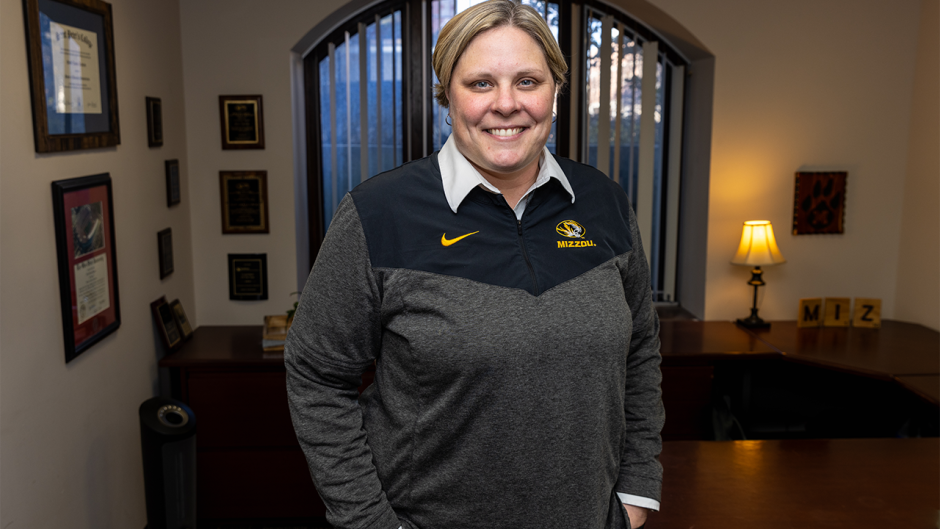March 24, 2020
Contact: Eric Stann, 573-882-3346, StannE@missouri.edu
As the COVID-19 virus begins spreading in the United States, children might see or hear news about the pandemic and the loss of life. Colleen Colaner is an associate professor in the Department of Communication in the College of Arts and Science at the University of Missouri. Here, Colaner gives five tips for how to talk with children about COVID-19, including acknowledging children’s feelings and how to talk with children about death.
Give your child clear, accurate and age-appropriate information.
Children are aware that there is a big, scary thing happening. Giving them some details can help them understand their world a little more. When talking to your children about the virus, use clear and accurate terminology. Children can be very literal with words, so euphemisms that we think will soften the blow can actually cause confusion. For example, we may say, “There is a bug going around that is making people sick.” Some children may think of all bugs as dangerous or associate this pandemic with insects. A more accurate way to explain this would be, “There is a virus that is making people sick.”
Acknowledge your child’s feelings about their changing worlds.
Children are experiencing a lot of loss right now. Their school communities are no longer available, which can cause a lot of sadness, anger and frustration. Their routines have been disrupted, which can cause anxiety and uncertainty. As parents work from home, children may see their parent’s job-related stress and experience loneliness. High schoolers are missing important rites of passage such as prom, graduation, plays and sporting events.
It’s important for children to be able to feel all these feelings. As Mr. Rodgers said, “Feelings are mentionable and manageable.” Many children will have a difficult time expressing these feelings appropriately. Letting our kids know, “It’s okay to be sad, mad or worried” gives them space to have their feelings. At the same time, we can put limits on their behaviors when they express their feelings in inappropriate ways. For example, “It’s okay to be mad about missing your friends, but it is not okay to yell at your family.”
Model good stress management for your child.
As the stress related to COVID-19 increases, children are going to need help managing their own stress. We can model good stress management by showing them how we tend to our own mental health. We don’t have to pretend that everything is okay. It’s helpful for children to see behind the curtain right now. We can show them that we can do hard things in this uncertain time. Let them know that this is hard for parents too, but that you are working to stay healthy and happy. Tell them what is helping you, such as meditation, breathing techniques, walks, movies, etc., and talk to them about what makes them feel better when things feel hard for them.
Be ready to talk to children about death
As we have more deaths related to the virus stateside, again, try to avoid euphemisms. Saying that a deceased family member “went to sleep” may provoke fears of sleeping at bedtime or nap time. Saying that “we lost” a family member may prompt fears of getting lost in public or wanting to search for the deceased person. A more accurate way to explain death of a loved one would be to say, “They are no longer alive. Their body will not work anymore, and they will not come back.” Acknowledge the feelings that the death of a loved one can bring up, and give your child empathy, but try to avoid unclear language.
Focus on the positives
There is a lot to be worried and unhappy about right now, but we can help our children a great deal by maintaining positivity. One way to show the positive is to point out how much helping is happening. As Mr. Rogers said, “Look for the helpers.” We are all helpers right now by staying home and washing our hands. Doctors, nurses and scientists are working hard right now to help us stay safe. Children need to feel hope and happiness to keep their brain developing in productive ways. Laughter, compliments, games and dance parties are vital right now to keep children’s spirits up.
Editor’s Note: To view Colaner’s bio, please click here.
To arrange an interview with Colleen Colaner, please contact Eric Stann at 573-882-3346 or StannE@missouri.edu.





